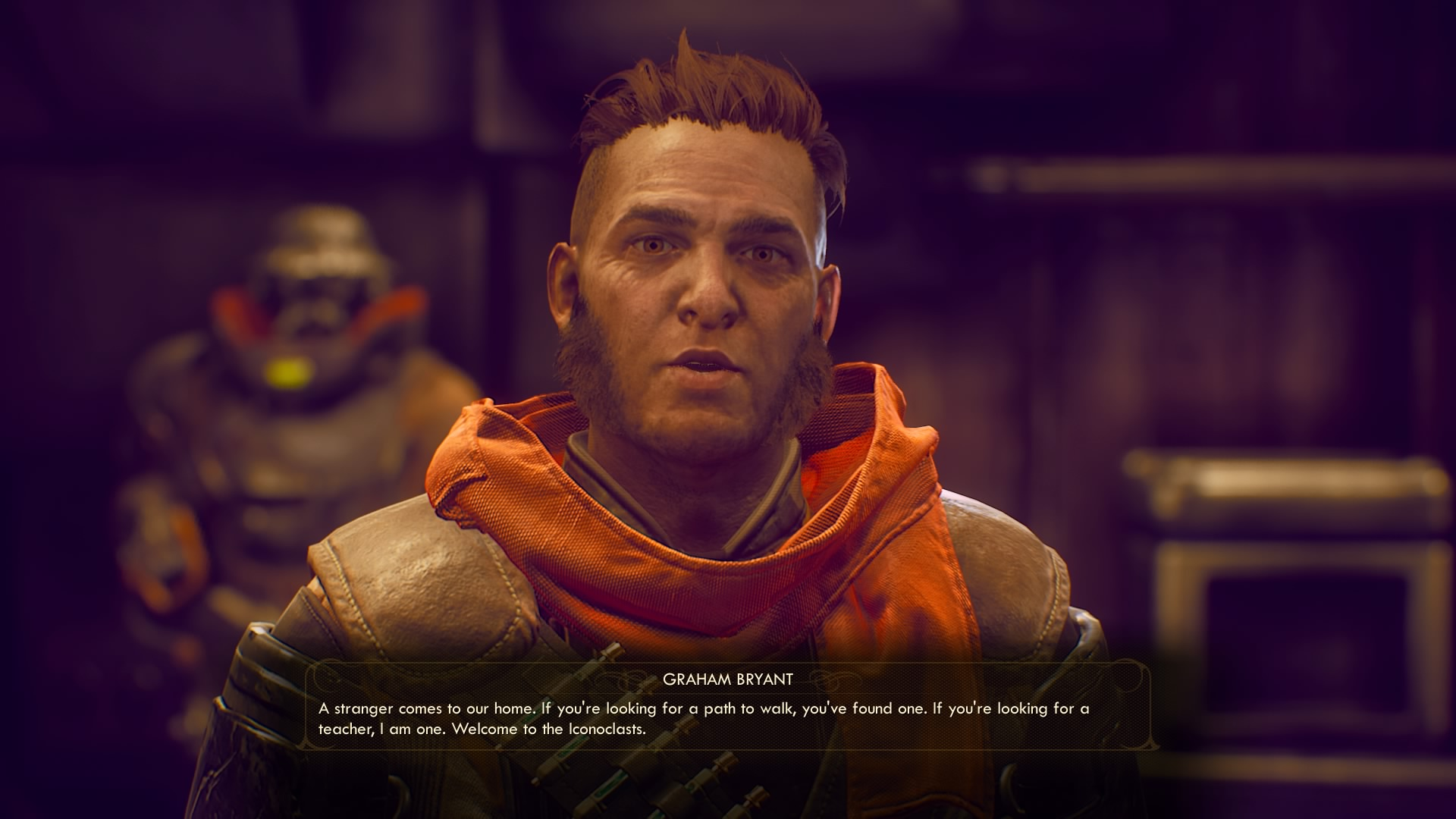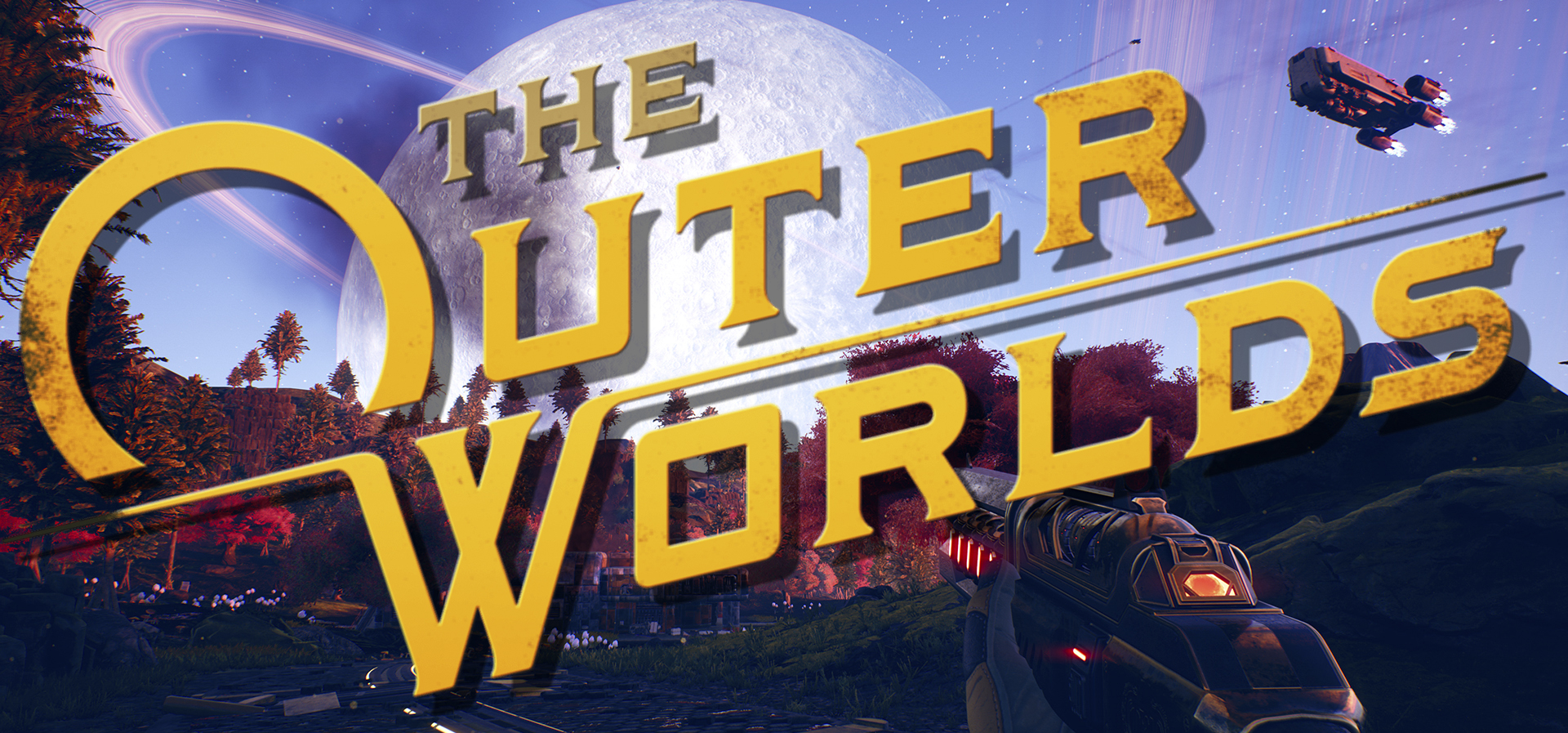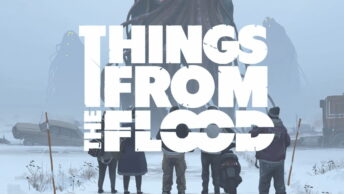A solid entry into the FPS RPG genre, The Outer Worlds refines the old formula into a superior gaming experience but offer only a few minor instances of true innovation.
Type: Single-player
Genre: RPG, Action, FPS
Developer: Obsidian Entertainment
Publisher: Private Division
Release date: 25 October, 2019


Overview
In recent years, few games have captured the narrative depth of old-school RPGs quite like The Outer Worlds has. The setting pulls you in, the characters keep you in your seat, and the story keeps you playing to find out what happens next. This title certainly isn’t going to revolutionize RPGs going forward, but it acts as the next logical step forward for many of the systems that we’ve grown accustomed to.
As a huge fan of Fallout: New Vegas, The Outer Worlds seemed like a title that had a lot of promise for returning us to the days of deep, narrative, choice-based gameplay, exactly what I had hoped that Fallout 4 was going to be once upon a time. Although that entry was quite a disappointment on the narrative side, the Outer Worlds manages to hold onto much of what made New Vegas great even if it doesn’t quite capture the same level of excellence in doing so. Although we’ve traded in the post-apocalyptic wasteland setting for a sci-fi dystopian one, this entry is the closest to a true competitor to that classic and is held back only by the reduced impact of its player-made choices.
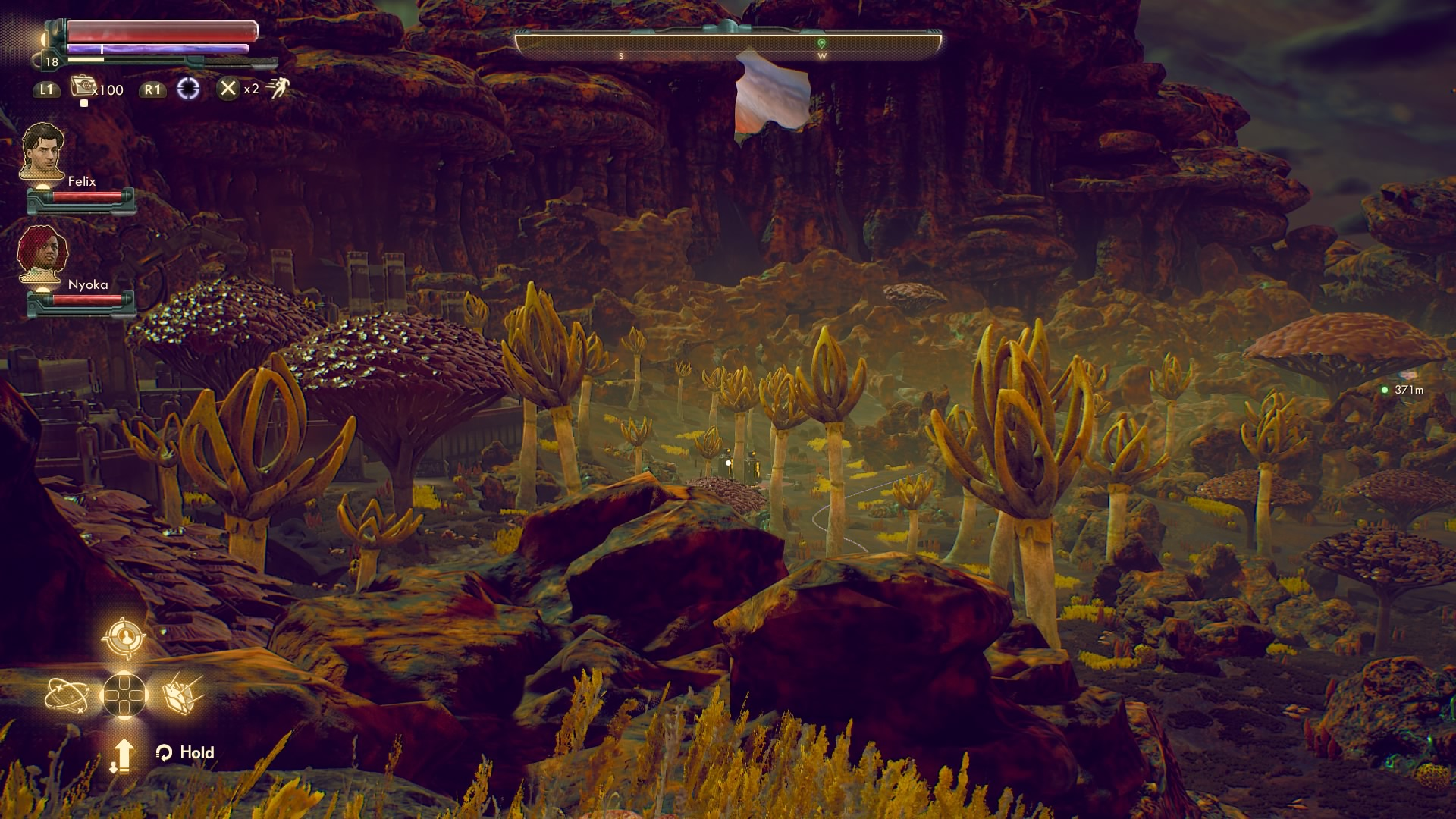
Hail To The Corporate Overlords
The setting of The Outer Worlds was clearly designed by those with a passion for it. Generations ago, an organization now referred to as “The Board” was formed by a number of corporations that combined their resources to purchase a territory in space with the intent to colonize it. With little ethical or moral oversight, unchecked capitalism has run wild and the people who live on the planets within the system are seen as nothing more than the most expendable assets of the company that they belong to. This dystopian state of affairs rears its ugly head frequently as it is ingrained into the fabric of the system’s culture and is no longer questioned, with few exceptions. You’ll see employees suffering some of the most inhumane treatment imaginable while they and their peers blame them for everything that is happening. One example that sticks out in my mind is where an entire group of sick residents are not allowed to have medicine allocated to them as it is too valuable to waste on unproductive assets, medication is reserved only for those who are still able to perform for the company. It’s certainly an interesting view of what humanity’s future could be if laissez-faire capitalism were to overtake it entirely.
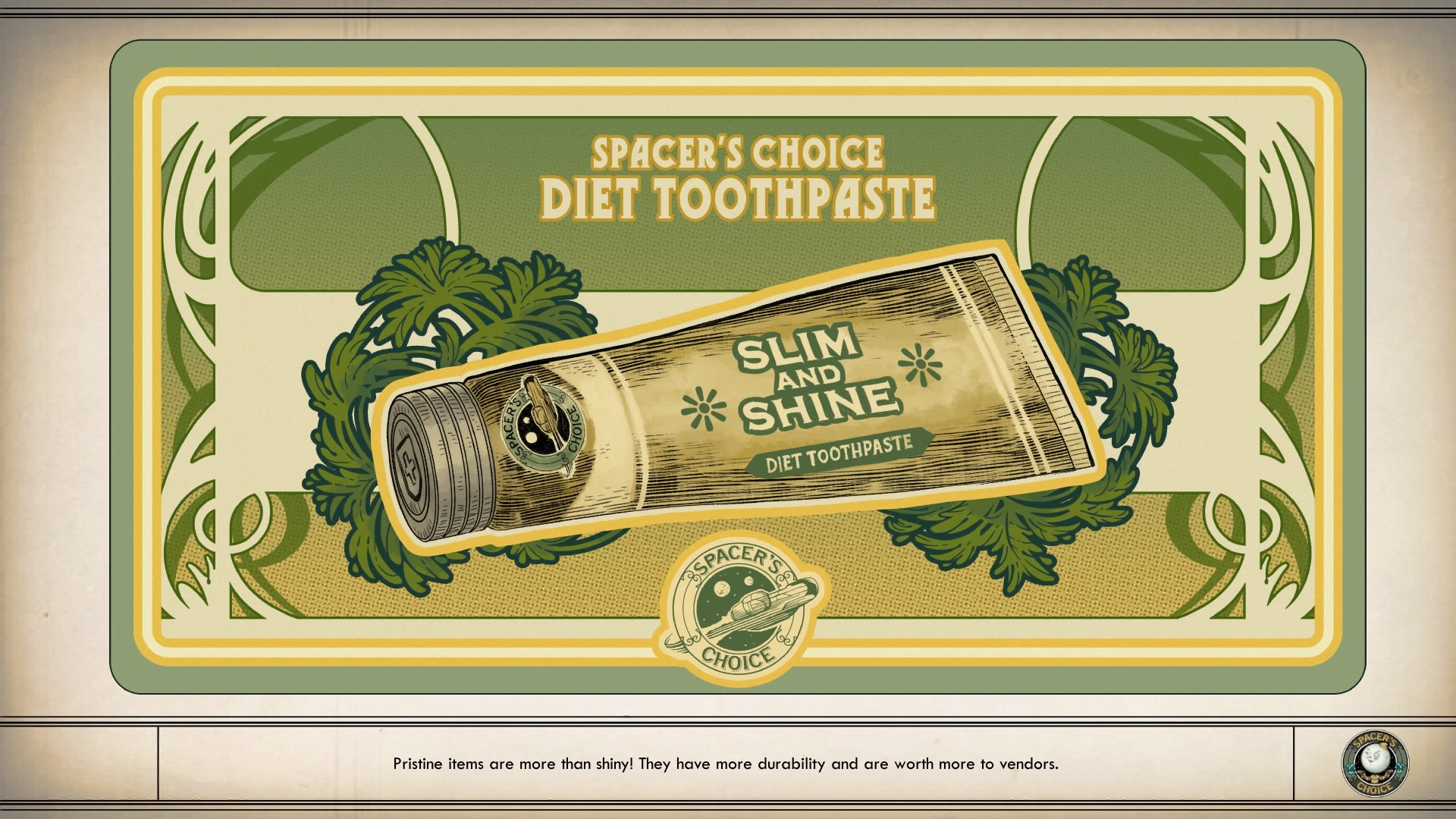
Moral choices are an important part of the experience and a good number of your quests will either begin or end with one, sometimes both. The vast majority of these don’t seem to have much in the way of meaningful long-term effects which I find unfortunate but they do offer choice in how you complete them and who you impress. You aren’t quite the world-changing catalyst that you might be in some other RPGs, but you will see your faction reputations change, the rare off-hand comment from a character about your past deeds, and another entry in your journal about it. Overall, I would say that the moral choices offer excellent opportunities for roleplaying your character but I found myself missing them having a greater and more frequent impact on the world that changed the setting as seen in other narrative RPGs before it.
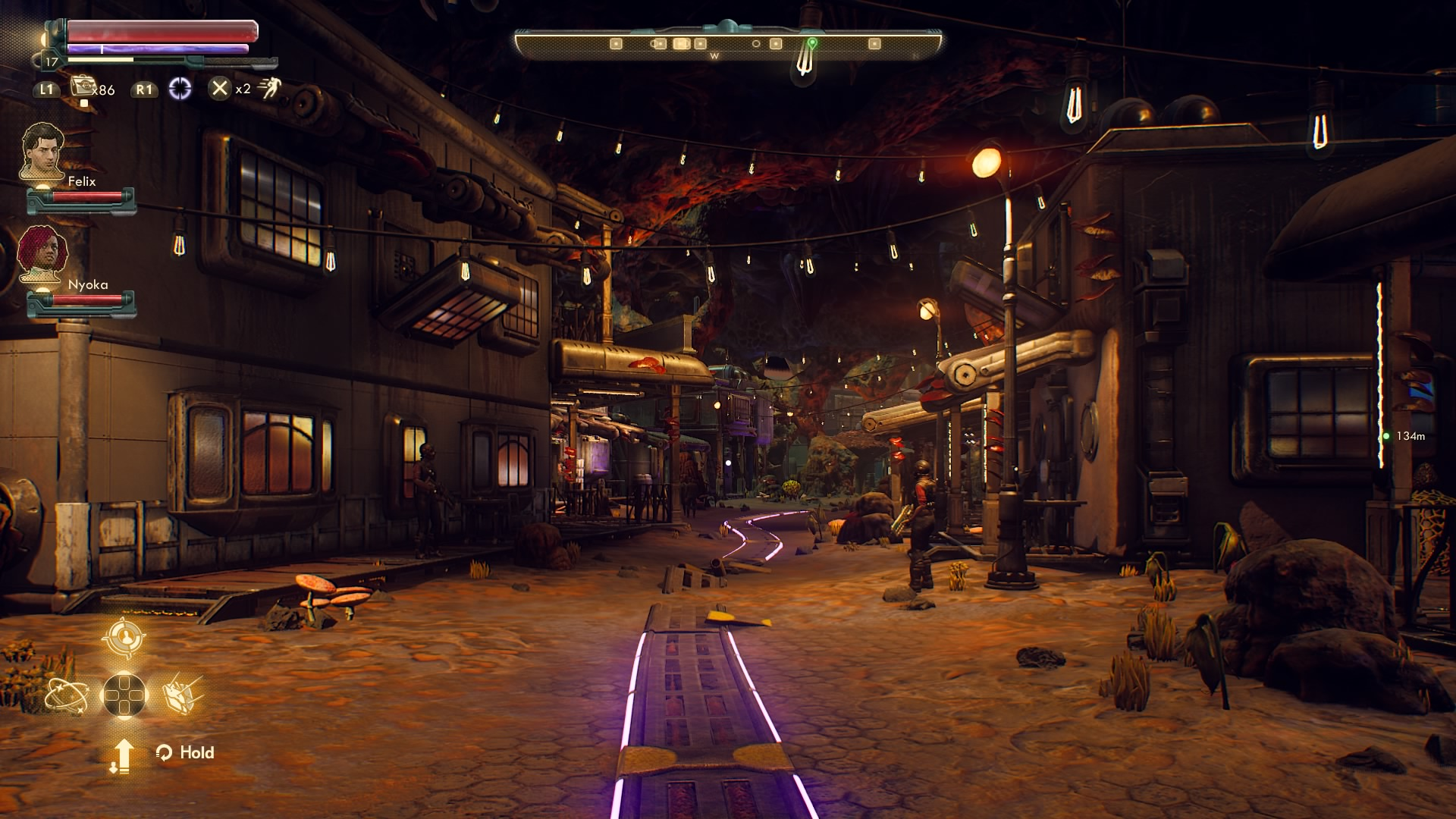
The factions are interesting and their own relations with each other are an integral aspect of The Outer Worlds’ story. A healthy number of these exist, both major and minor, and your actions will build both positive and negative relations with them on two separate meters. If you’re particularly helpful in pushing their ambitions, you’ll get discount prices and extra items from their vendors, and maybe even a surprise acknowledgment of a past deed once in a great while. Although the faction system isn’t poorly done by any means, I feel that it was underutilized and didn’t live up to its potential. I would have liked to have seen the factions pitted against each other far more often with you pushed and pulled between them. Instead, the vast majority of your faction dealings involve choosing whether or not to complete a mission for one of them with no inter-faction competition for your loyalties. This isn’t to say that there aren’t quests with multiple factions involving big choices, but they’re far less common than I had hoped.
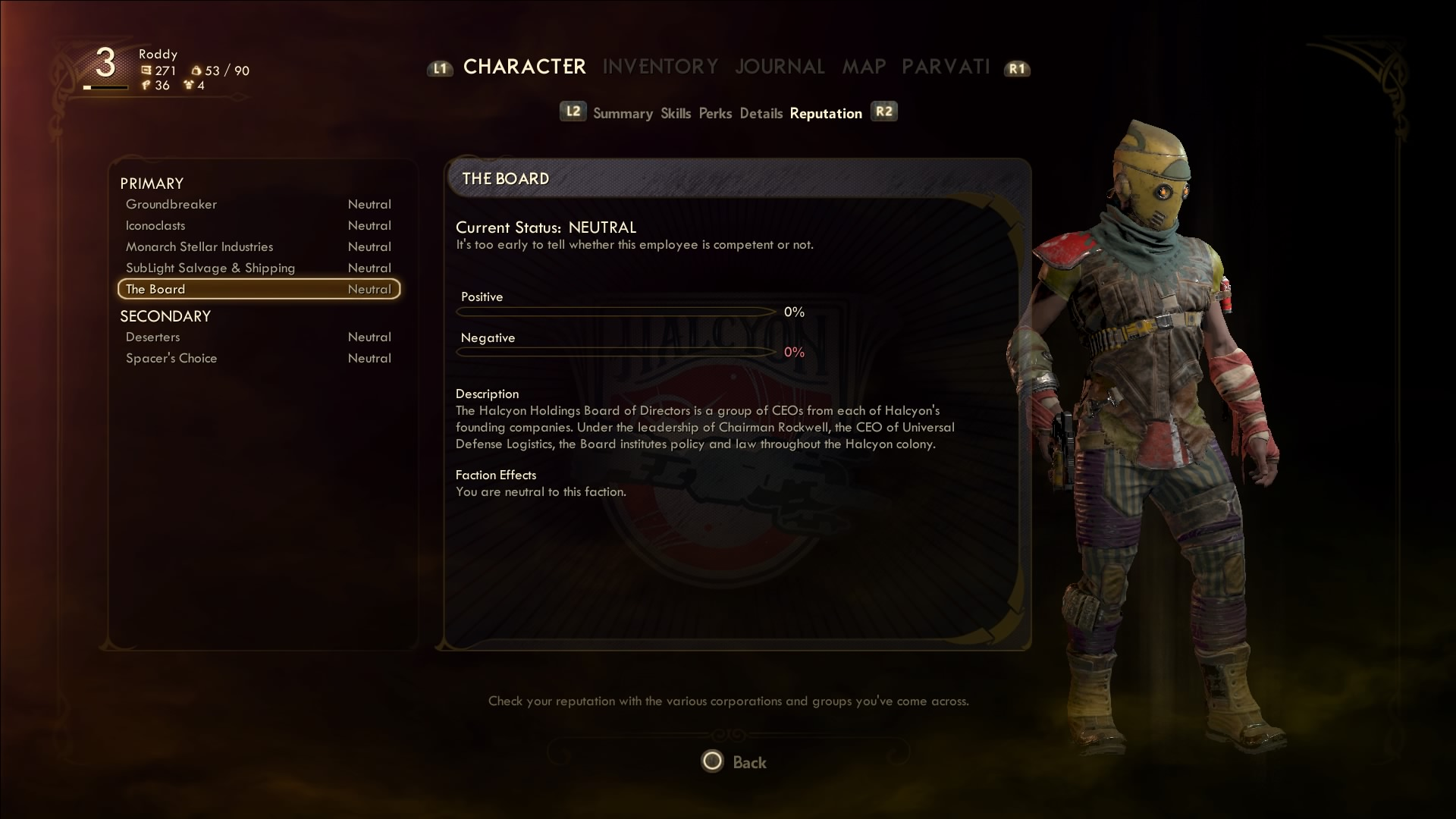
Blast From The Past
Interestingly enough, your character starts with the same amount of experience in this world as you do. You were a passenger on one of the first colonist ships to the territory decades ago, but due to complications, your employer decided that it wasn’t cost-effective to rescue your ship from the misfortune that fell upon it. After being stuck in stasis for generations, an eccentric scientist with a reputation for being a terrorist manages to rescue you and release you from your fate. Within only a short time, he launches you off to the surface of a nearby world where you are to meet a contact of his and antics ensue. Your story begins here.
Designing your character offers few surprises for veterans for the genre; you can personalize them as you see fit with a variety of hairstyles, feature sliders, scars, and so forth. You’ll fine-tune your base stats (strength, dexterity, intelligence, perception, charm, temperament) and they will set the baseline for your talent with an impressive but familiar list of skills. These skills are further improved by points that you can apply to them to improve them followed by a final boost decided by your selection of an aptitude. Aptitudes represent your profession prior to the journey and are quite entertaining as they aren’t exactly what you would consider heroic. My character held a position as a ‘cashier, sub-grade, non-supervisory’ which granted me a tiny bonus to the persuade skill.
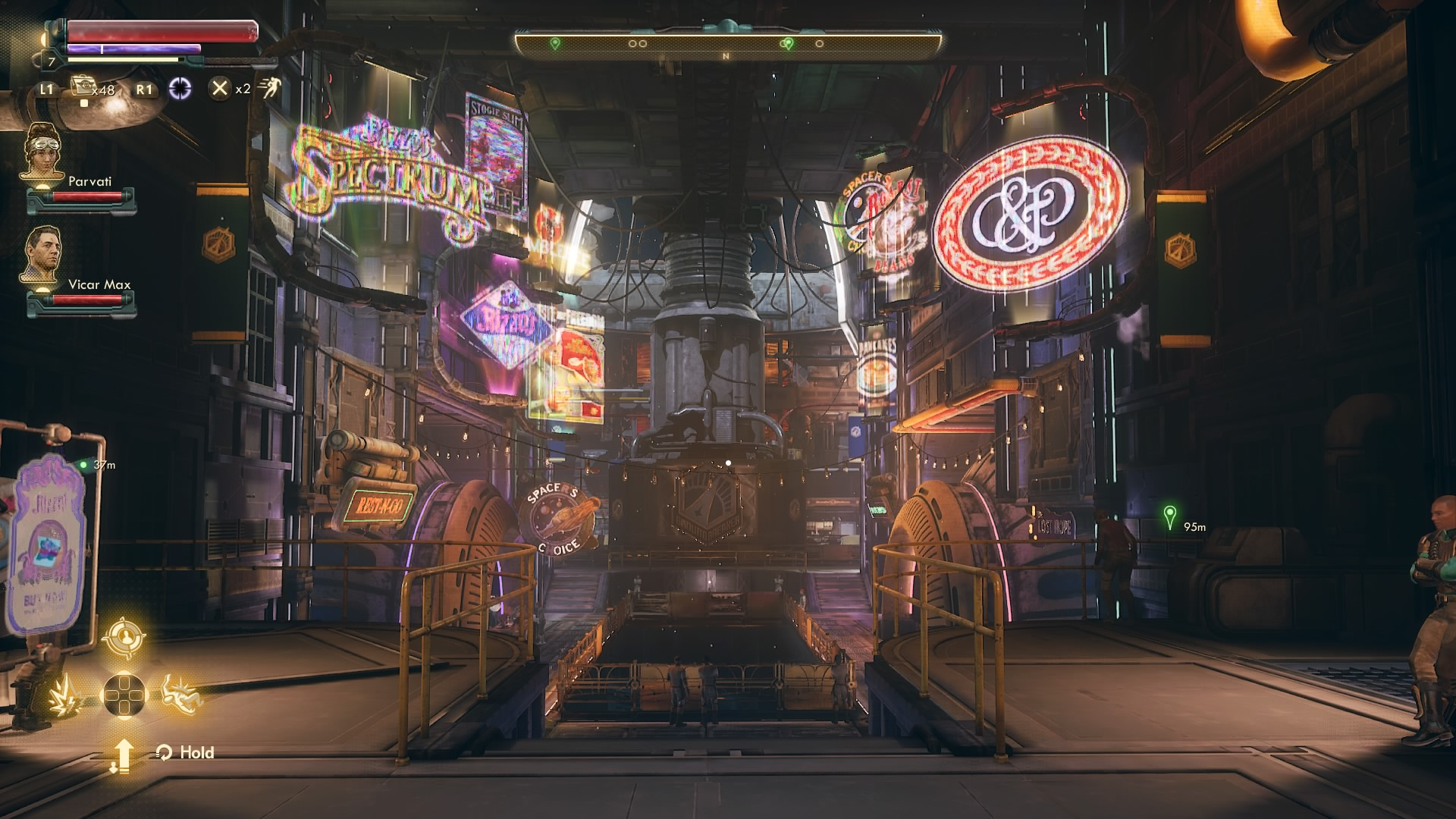
As you gain experience, you’ll earn skill points at every level and a perk every other. Skills are seemingly well-balanced in my experience as they all seem to have value and I genuinely struggled to decide on a build due to all of the potential that I could see with each and every one of them. In addition, each time a skill reaches a certain threshold, you gain a benefit that tends to be very worth the investment. I especially enjoyed the benefits that were applied to the dialog and leadership skills; the former have passive benefits that increase your combat effectiveness in a roundabout way while the latter significantly strengthen your companions. This made it entirely possible to play as a mediocre combatant and still be viable as fire support for your allies.
My character was primarily focused on dialog skills and stealth skills, though I ended up putting a fairly significant number of points into ranged combat as I couldn’t resist the temptation of sniper rifles and heavy machine guns. There were plenty of times where all of these skilled played a significant role in overcoming the challenges before me but there were also quite a few where I felt that I couldn’t use skills in dialog when it would have made sense. Overall, even with the occasional disappointment, I was pleased with the character design and value of each skill that’s available to us.
Perks, on the other hand, didn’t really impress me. As a stealthy diplomat, I rarely had an interest in dipping into combat perks as my companions cleaned up pretty solidly in that regard. Unfortunately, I ended up taking many of them anyway due to having few options that were of real value to me. This is quite a departure from almost every other game where perks are particularly exciting to many of us. The introduction of flaws was one that had a lot of potential if perks held more value. The idea is that you experience enough of a type of hardship during your adventure (falling damage, for example) and develop a phobia that debuffs you while dealing with it (height in this case) if you so choose; if you choose to suffer this phobia you get to choose a new perk then and there. I did that once early on and then never accepted another one simply because I never felt that even a minor inconvenience was worth the selection of another low-impact perk.
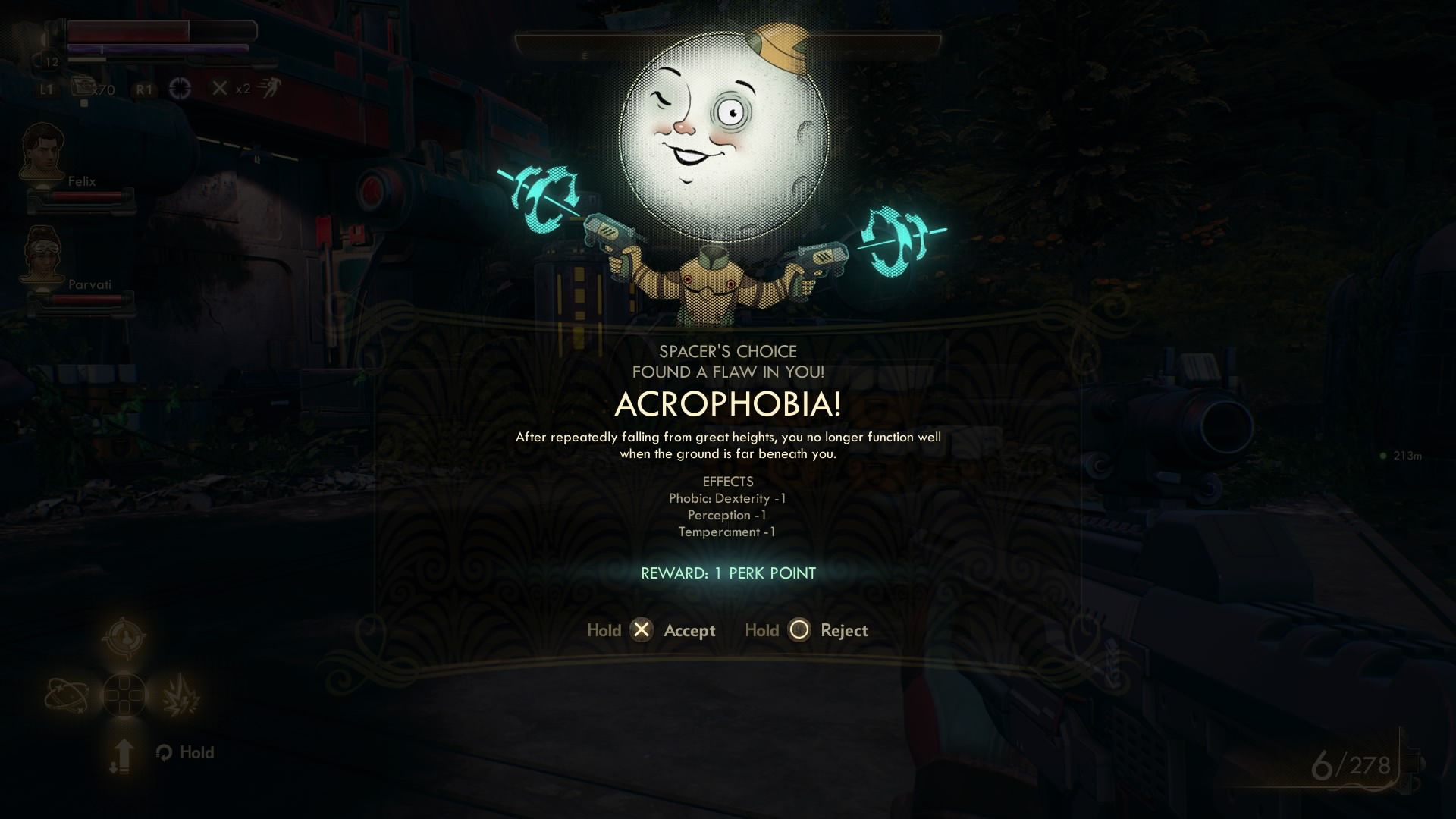
New People To Meet
Companions bring a fairly unique system along with them. Each of them has their own set of skills, a special ability, and a perk tree that varies slightly from one to the next. Their skills are useful as they add a bonus to your own; you’ll be bringing your hacking specialist along when there’s a terminal or two in your way while you’ll bring your more friendly allies along when there’s talking to do. Special abilities are manually activated on a target in combat as long as you have enough leadership skill to unlock its first-tier ability. These are unique and powerful attacks that include a short cinematic, significant damage, and slap a debuff or two on the chosen foe. If you’ve ever wanted to have a companion dropkick a giant robot-like they’re Macho Man Randy Savage, The Outer Worlds has you covered. Perks, on the other hand, assist you in tailoring each companion’s build to what you would like them to do in your party, such as boosting their ability to attract or avoid enemy aggro, or even simply boost their highest skill, indirectly boosting your value for it as well.
As an added benefit, the characters tend to hit that sweet spot where most of them have been written with interesting backstories that can be discovered while speaking with them but they also don’t waste your time with massive chunks of exposition that put you to sleep. Companions were fairly hit or miss for me, I feel that as a whole they could have been improved, but there were two of them that I thought were very impressive, my favorite being your resident priest. I’ll let you discover the details on that all yourself but his special ability voice lines are one of the highlights of the game for me.
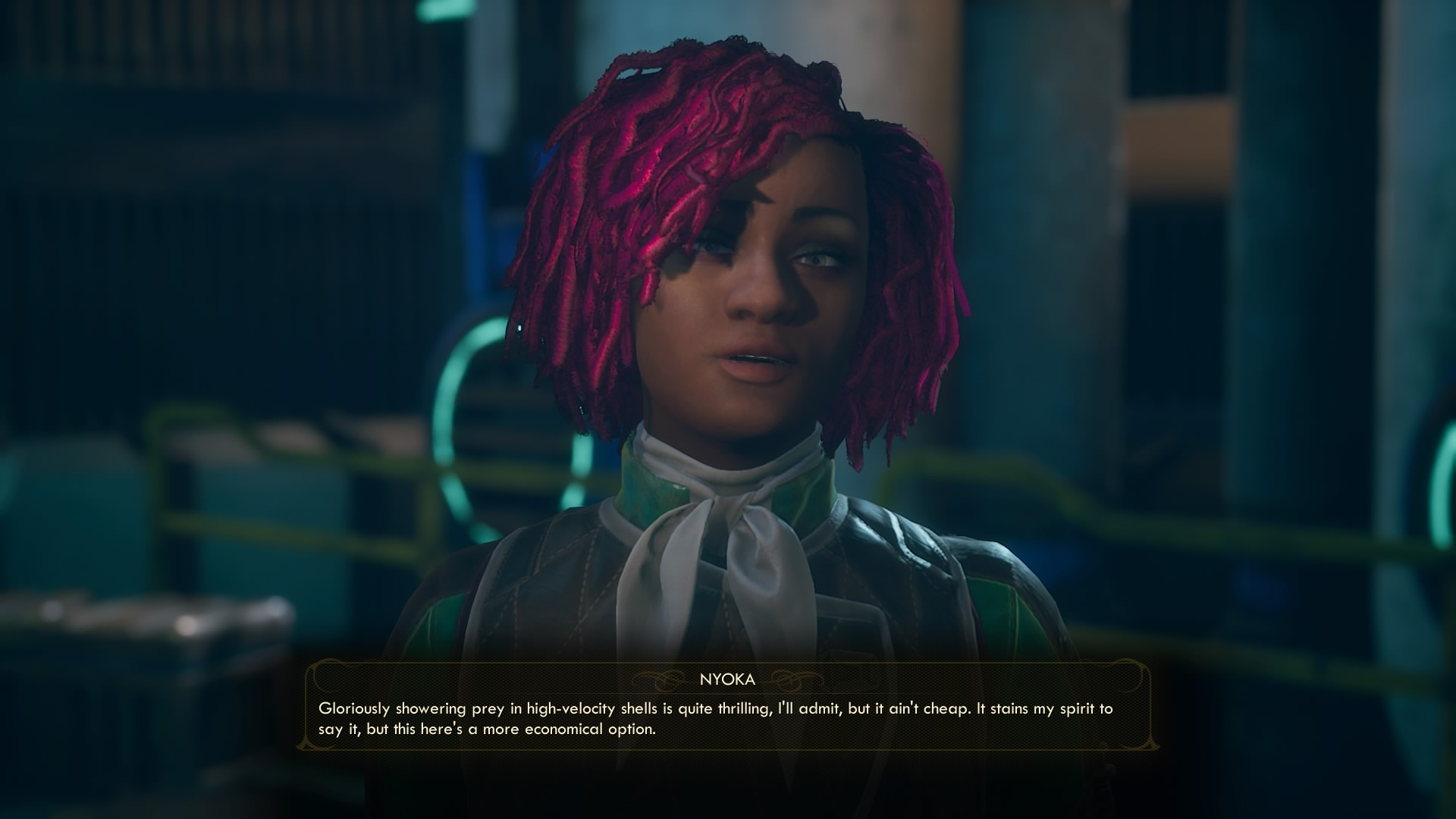
Are You Going To Tell Us About The Gameplay Or…?
I’m glad you asked. The gameplay is very similar to the inspiration material here and if you’ve played the more recent Fallouts or other open-world first-person Bethesda-style RPGs, you know what to expect. Weapons come in a rather large variety, which is nice, and mods can be applied to them to not only boost their innate efficiency but add some new effects to them such as increased critical damage or changing their damage type to plasma. Consumables are all over the game world and add some nice lore-based flavor to it, much like other entries in the genre, and offer a variety of buffs for a short time after using them. Simple junk, also appropriately themed, is scattered all over the world and can be sold off to vendors for a few bits here and there.
Tactical Time Dilation is a useful mechanic and one that won’t be unfamiliar. It’s basically a combination of bullet time and VATS (Fallout) that significantly slows down time and allows you to land shots accurately on specific parts of enemies for added effects. It’s a new take on such an ability and I enjoyed it without any real complaints and it always gave me a good laugh when it was described as a side effect of long-term stasis.
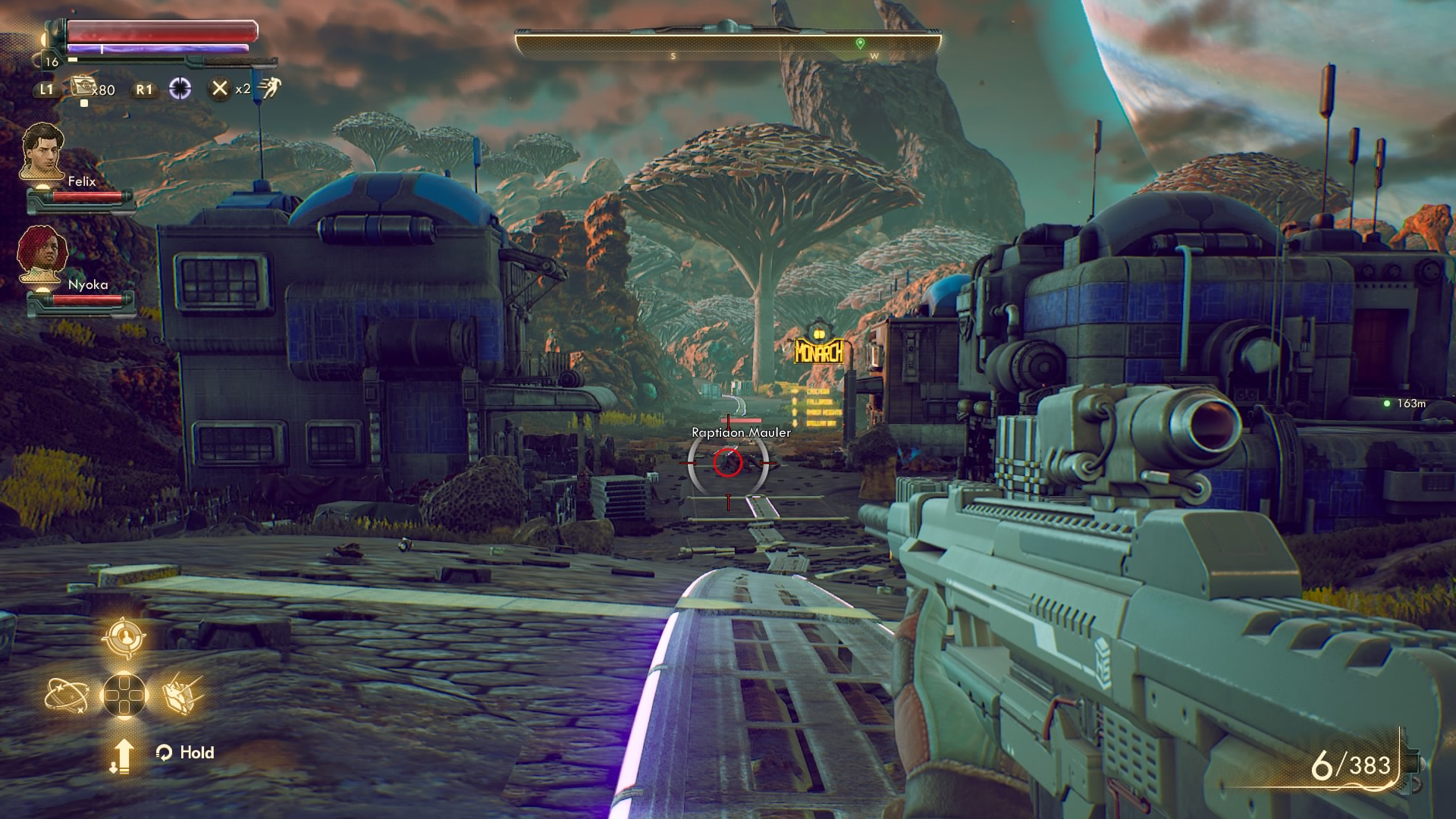
Verdict
The Outer Worlds is a good RPG, but depending on your preferences, perhaps not quite as good as you’ve heard from some of the voices out there. I’ve enjoyed my time with it and I would absolutely say that it’s one of the better RPGs that have been released recently but it doesn’t quite have the same amount of soul as its spiritual predecessors even if it is mechanically superior in almost every way in regard to its gameplay. The graphics and audio are implemented beautifully and the atmosphere was always solid even if I wasn’t particularly fond of the flamboyant color scheme of the flora and fauna that we frequently encounter on the alien worlds. I would highly recommend this game to anyone interested in its concept or in the open-world RPGs of the past but I would make sure to temper your expectations as The Outer Worlds is an RPG that is very worth playing, but one that offers little that is new to the genre while reducing the frequency of player-made choices that make you feel as if you’ve changed the world yourself.
